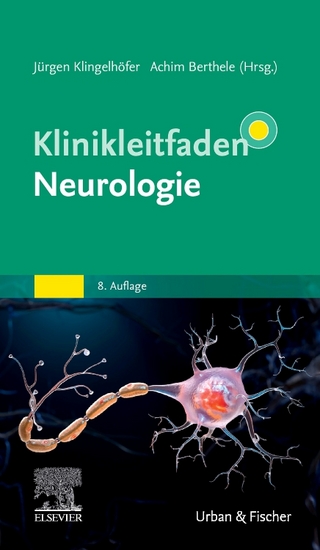
Neurobiology of Huntington's Disease
Applications to Drug Discovery
Seiten
2010
Crc Press Inc (Verlag)
978-0-8493-9000-5 (ISBN)
Crc Press Inc (Verlag)
978-0-8493-9000-5 (ISBN)
Highlighting advances in the discovery and development of new drug therapies for neurodegenerative disorders, this title focuses on the many aspects of the research on drugs to treat Huntington's disease. It also examines the practical realities of preclinical testing, clinical testing strategies, and, ultimately, clinical usage.
In 1993, the genetic mutation responsible for Huntington’s disease (HD) was identified. Considered a milestone in human genomics, this discovery has led to nearly two decades of remarkable progress that has greatly increased our knowledge of HD, and documented an unexpectedly large and diverse range of biochemical and genetic perturbations that seem to result directly from the expression of the mutant huntingtin gene.
Neurobiology of Huntington’s Disease: Applications to Drug Discovery presents a thorough review of the issues surrounding drug discovery and development for the treatment of this paradigmatic neurodegenerative disease. Drawing on the expertise of key researchers in the field, the book discusses the basic neurobiology of Huntington’s disease and how its monogenic nature confers enormous practical advantages for translational research, including the creation of robust experimental tools, models, and assays to facilitate discovery and validation of molecular targets and drug candidates for HD. Written to support future basic research as well as drug development efforts, this volume:
Covers the latest research approaches in genetics, genomics, and proteomics, including high-throughput and high-content screening
Highlights advances in the discovery and development of new drug therapies for neurodegenerative disorders
Examines the practical realities of preclinical testing, clinical testing strategies, and, ultimately, clinical usage
While the development of effective drug treatments for Huntington's disease continues to be tremendously challenging, a highly interactive and cooperative community of researchers and clinical investigators now brings us to the threshold of potential breakthroughs in the quest for therapeutic agents. The impressive array of drug discovery resources outlined in the text holds much promise for treating this devastating disease, providing hope to long-suffering Huntington’s disease patients and their families.
In 1993, the genetic mutation responsible for Huntington’s disease (HD) was identified. Considered a milestone in human genomics, this discovery has led to nearly two decades of remarkable progress that has greatly increased our knowledge of HD, and documented an unexpectedly large and diverse range of biochemical and genetic perturbations that seem to result directly from the expression of the mutant huntingtin gene.
Neurobiology of Huntington’s Disease: Applications to Drug Discovery presents a thorough review of the issues surrounding drug discovery and development for the treatment of this paradigmatic neurodegenerative disease. Drawing on the expertise of key researchers in the field, the book discusses the basic neurobiology of Huntington’s disease and how its monogenic nature confers enormous practical advantages for translational research, including the creation of robust experimental tools, models, and assays to facilitate discovery and validation of molecular targets and drug candidates for HD. Written to support future basic research as well as drug development efforts, this volume:
Covers the latest research approaches in genetics, genomics, and proteomics, including high-throughput and high-content screening
Highlights advances in the discovery and development of new drug therapies for neurodegenerative disorders
Examines the practical realities of preclinical testing, clinical testing strategies, and, ultimately, clinical usage
While the development of effective drug treatments for Huntington's disease continues to be tremendously challenging, a highly interactive and cooperative community of researchers and clinical investigators now brings us to the threshold of potential breakthroughs in the quest for therapeutic agents. The impressive array of drug discovery resources outlined in the text holds much promise for treating this devastating disease, providing hope to long-suffering Huntington’s disease patients and their families.
Duke University Medical Center, Durham, North Carolina, USA Buck Institute for Age Research, Novato, California, USA
Introduction. Clinical Overview of HD. Genetics of HD. Molecular Pathology of Hungtingtin Function. Genomic, Protemoics, and Metabonomics of HD. High-throughput Screening in HD. High-content Screening in HD. Animal Models for HD. Pharmaceutical Development for HD. HD Clinical Trials.
| Erscheint lt. Verlag | 12.7.2010 |
|---|---|
| Reihe/Serie | Frontiers in Neuroscience |
| Zusatzinfo | 10 Tables, black and white; 36 Illustrations, black and white |
| Verlagsort | Bosa Roca |
| Sprache | englisch |
| Maße | 156 x 234 mm |
| Gewicht | 612 g |
| Themenwelt | Medizin / Pharmazie ► Medizinische Fachgebiete ► Neurologie |
| Naturwissenschaften ► Biologie ► Humanbiologie | |
| Naturwissenschaften ► Biologie ► Zoologie | |
| Technik ► Umwelttechnik / Biotechnologie | |
| ISBN-10 | 0-8493-9000-1 / 0849390001 |
| ISBN-13 | 978-0-8493-9000-5 / 9780849390005 |
| Zustand | Neuware |
| Haben Sie eine Frage zum Produkt? |
Mehr entdecken
aus dem Bereich
aus dem Bereich
interdisziplinäre Diagnose- und Behandlungsstrategien
Buch | Hardcover (2024)
Urban & Fischer in Elsevier (Verlag)
97,00 €
Buch | Hardcover (2024)
Springer (Verlag)
139,99 €


